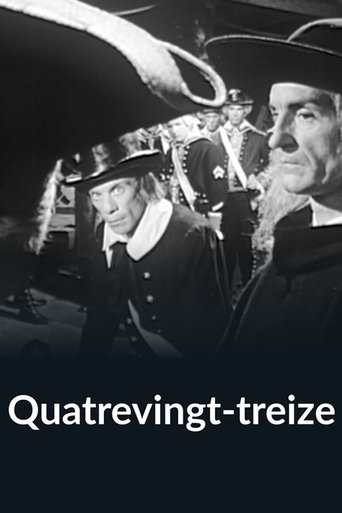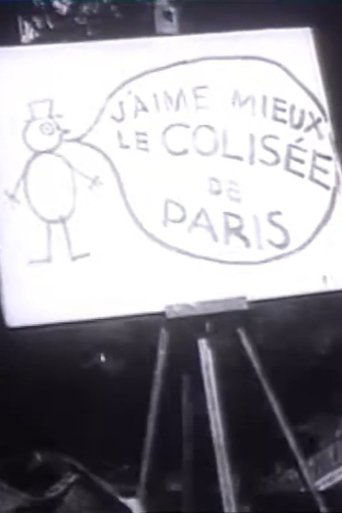Roger Blin
Is eol do: Acting
Breithlá: 1907-03-22
Áit bhreithe: Neuilly-sur-Seine, Seine [now Hauts-de-Seine], France
Ar a dtugtar: Роже Блен

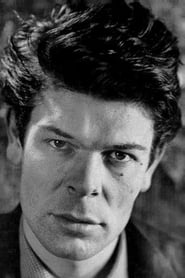

Le Fantôme de Laurent Terzieff
Laurent Terzieff was more than a good actor, after having been a real "star" in the cinema, through his professional choices, he gradually became a...
Scaoileadh : 2020.09.09Coitianta : 1.746

That Most Important Thing: Love
Servais Mont, a freelance photographer who works taking compromising photos, gets fascinated by Nadine Chevalier, a tormented low-budget movie...
Scaoileadh : 1975.02.12Coitianta : 10.517
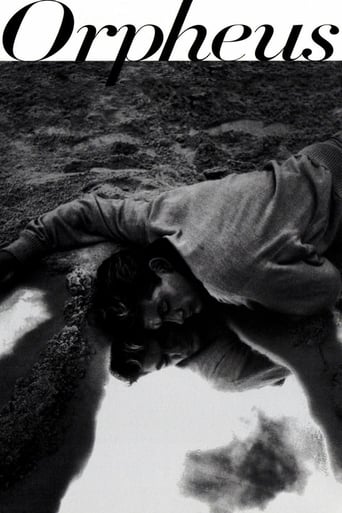
Orpheus
A poet in love with Death follows his unhappy wife into the underworld.
Scaoileadh : 1950.09.29Coitianta : 11.154
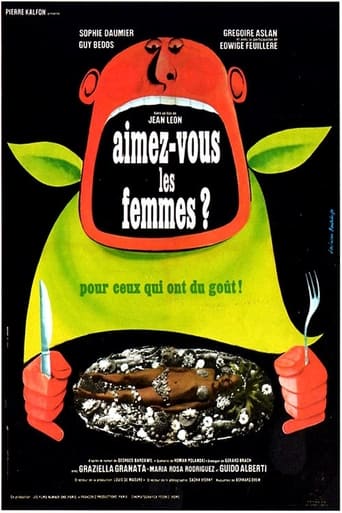
A Taste for Women
A writer discovers a link between a vegetarian restaurant and a series of mysterious deaths.
Scaoileadh : 1964.05.13Coitianta : 1.109
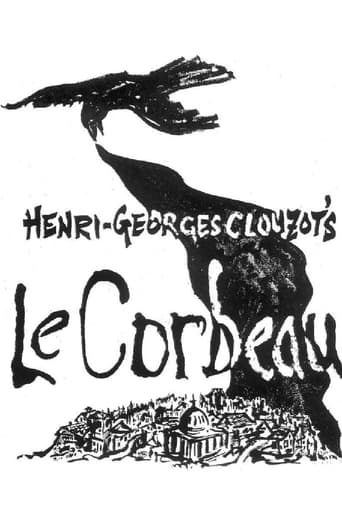
Le Corbeau
Remy Germain is a doctor in a French town who becomes the focus of a vicious smear campaign, as letters accusing him of having an affair and...
Scaoileadh : 1943.09.28Coitianta : 7.425

Strange Tales
A group of policemen look over three murder cases including a cutthroat that prays on young women, a madman that hid his deformed landlord's corpse...
Scaoileadh : 1949.10.26Coitianta : 3.398

The Devil's Envoys
At the end of the 15th century, a man and a woman, posing as traveling minstrels, are sent by the Devil to a castle to seduce its inhabitants.
Scaoileadh : 1942.12.05Coitianta : 10.63
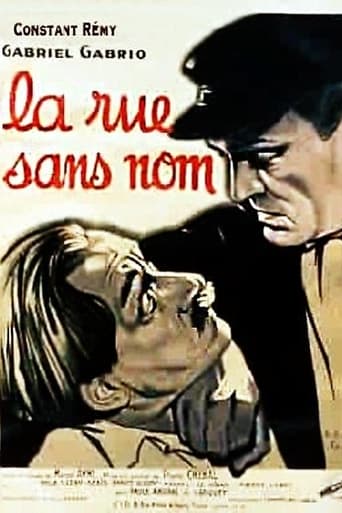
Street Without a Name
The story focuses on a street in the Parisian banlieue where Italian and French workers live. Their neighborhood will soon be demolished and a...
Scaoileadh : 1934.02.02Coitianta : 0.631
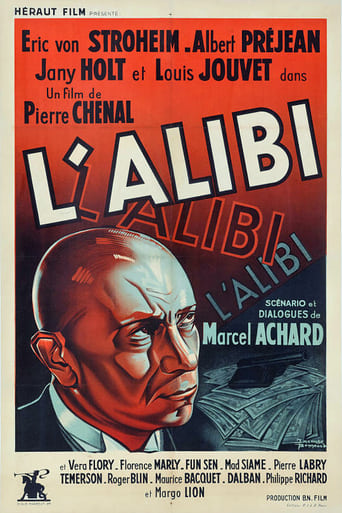
Alibi
Paris, 1937. Winckler kills his enemy Gordon, a Chicago mobster, from the stage of a Parisian music hall, where he performs telepathy. He pays...
Scaoileadh : 1937.12.22Coitianta : 2.283
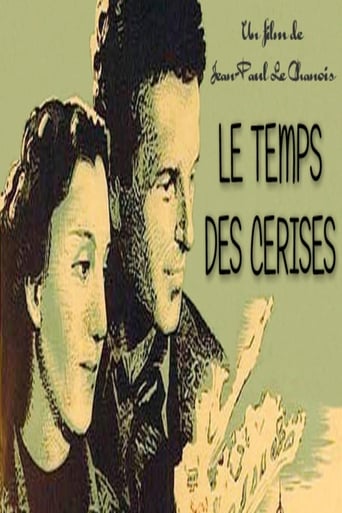
The Time of the Cherries
A poor peasant family, a failed cabinet maker and an unemployed worker struggle in contrast to crooked rich businessmen. nearby.A Communist meeting...
Scaoileadh : 1938.01.26Coitianta : 1.128
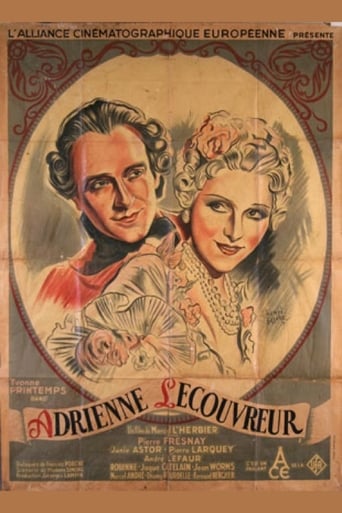
Adrienne Lecouvreur
Adrienne Lecouvreur is an acclaimed actress who falls in love with Polish prince Maurice de Saxe, only to be poisoned by a jealous rival while...
Scaoileadh : 1938.10.28Coitianta : 0.749
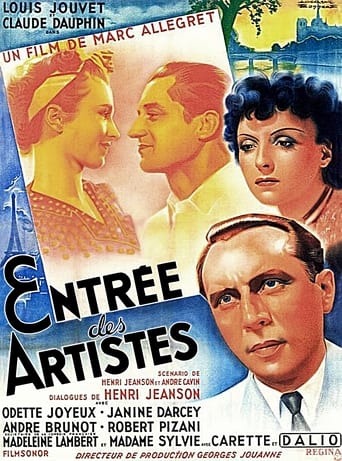
The Curtain Rises
1938, France, Paris, at the Superior Conservatory of Dramatic Art ("Conservatoire Supérieur d'Art Dramatique"). The first-year entrance exams...
Scaoileadh : 1938.10.06Coitianta : 3.494

The World Will Shake
In this sci-fi film, a scientist invents a prescient machine that can tell people when they will die. Oddly enough, the people do not want to know...
Scaoileadh : 1939.05.10Coitianta : 0.78
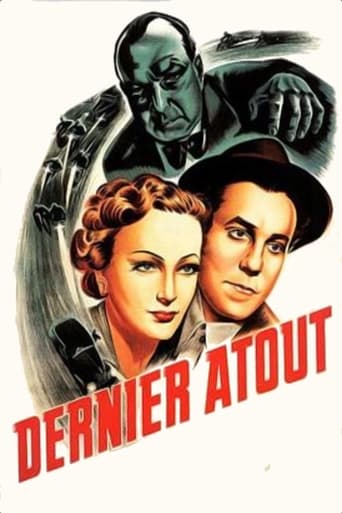
The Trump Card
A man is shot In the hotel of an imaginary South American country. Clarence and Montès, two inspector students, must solve this murder, but...
Scaoileadh : 1942.09.02Coitianta : 1.8

Captain Fracasse
Out of love for an actress, Isabelle, the Baron de Sigognac joins a traveling troop en route to Paris. When an actor dies, he takes over his role:...
Scaoileadh : 1943.06.19Coitianta : 1.757
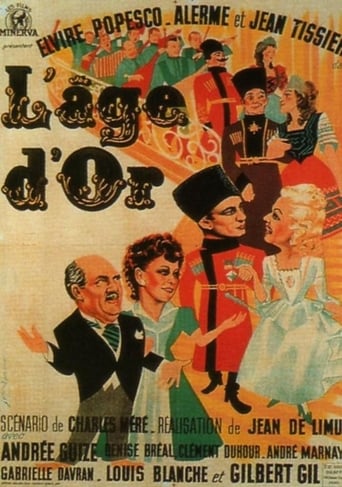
L'âge d'or
Véra, a vivacious woman, and her alleged brother Boris, are both hired by the Dubelairs as their chambermaid and caretaker. But Dubelair has...
Scaoileadh : 1942.01.28Coitianta : 0.869
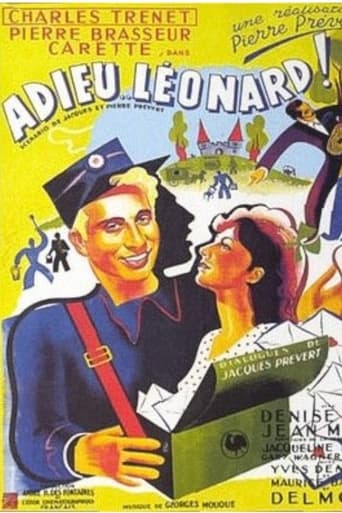
Adieu Léonard
A bungling thief is threatened by one target with blackmail, unless the thief will kill his own cousin, a wealthy eccentric who is considered the...
Scaoileadh : 1943.09.01Coitianta : 1.613
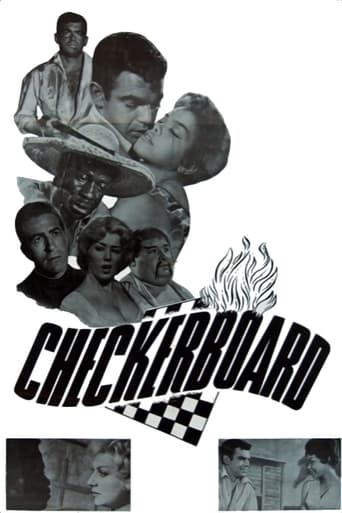
Checkerboard
In a small Gallic village, tourists are regaled by street entertainers and brash prostitutes. One of the tourists, a black girl named Bessie, falls...
Scaoileadh : 1959.05.06Coitianta : 0.868
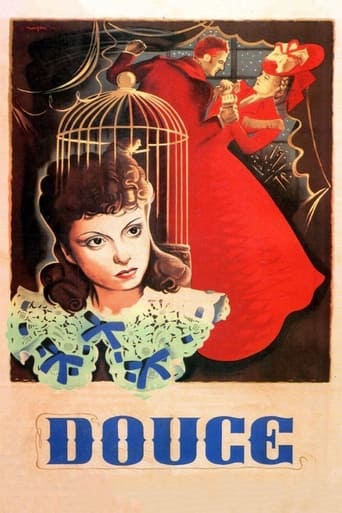
Douce
In Paris in 1887, Irène works as a governess to Douce, the grand-daughter of the dowager Countess de Bonafé. Douce believes she is in...
Scaoileadh : 1943.11.09Coitianta : 1.387
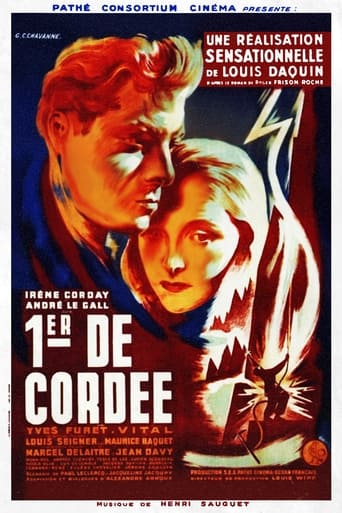
First in Line
A screen adaptation of the well-known novel by Roger Frison-Roche about the harsh lives of mountain guides and their families in the French Alps,...
Scaoileadh : 1944.02.23Coitianta : 0.871
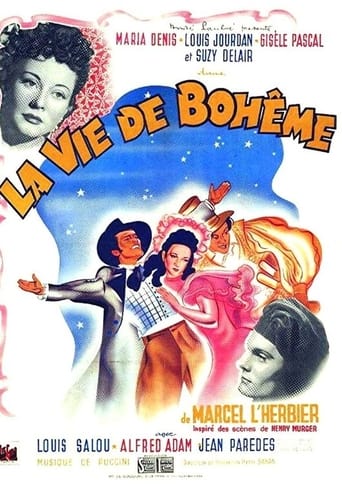
The Bohemian Life
Four young friends share the carefree, cheerfulness, laughter and dances of Bohemian life. Rodolphe the painter, Alexandre Chaunard the composer,...
Scaoileadh : 1945.10.17Coitianta : 0.519
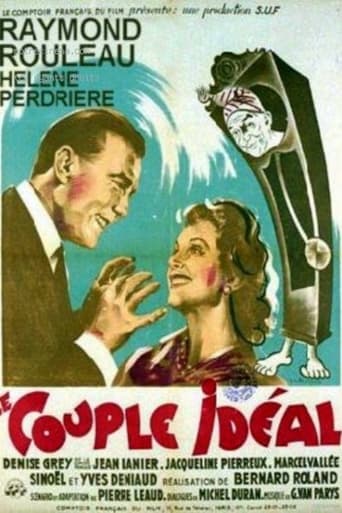
The Ideal Couple
Diavalo is the popular hero of French serials circa 1912. Diana is an actress who falls in love with Diavalo. Diavalo is forced to wear a series of...
Scaoileadh : 1946.05.31Coitianta : 0.925

The Last Judgment
In Central Europe, resistance to the Germans in growing. But the partisan leader is denounced and killed. His daughter and the son of the traitor...
Scaoileadh : 1945.12.08Coitianta : 0.46

Jenny
When her fiancé breaks off their engagement, Danielle leaves London and returns to her mother, Jenny, in Paris. With her business partner...
Scaoileadh : 1936.09.18Coitianta : 2.132
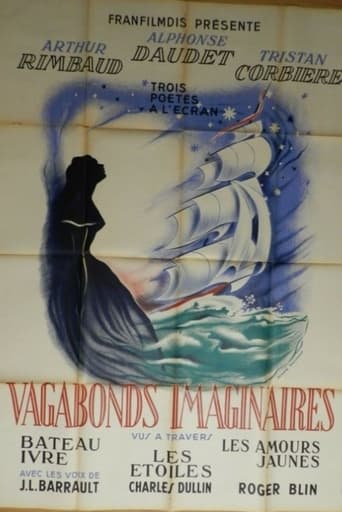
Vagabonds imaginaires
Jean-Louis Barrault, Charles Dullin and Roger Blin each say a poem. The actors do not appear on screen.
Scaoileadh : 1950.04.26Coitianta : 0.626
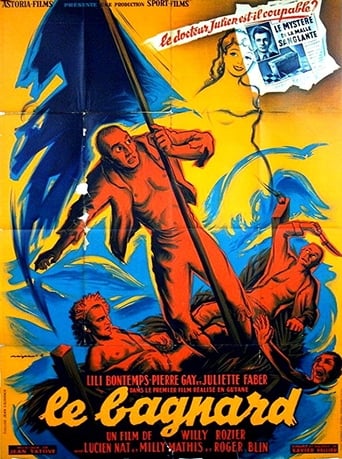
The Convict
The practice of Dr. Julien, a GP of Marseilles, consists mainly of drug-addicts. One day, one of his patient dies at his surgery and Julien yields to...
Scaoileadh : 1951.03.07Coitianta : 1.26
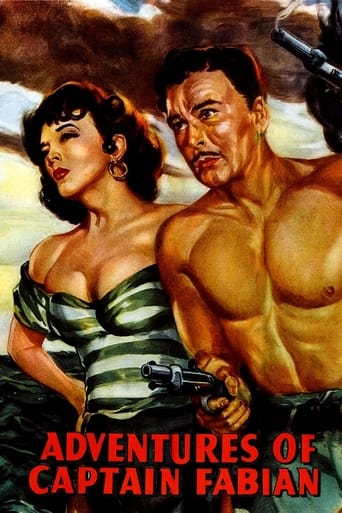
Adventures of Captain Fabian
It all begins with the discreet romance between the Creole maid Lea Mariotte and her young boss, George Brissac, an amoral bourgeois who plans to...
Scaoileadh : 1951.10.06Coitianta : 3.486

Torticola versus Frankensberg
A comedic take on the Frankenstein story.
Scaoileadh : 1952.04.19Coitianta : 0.994
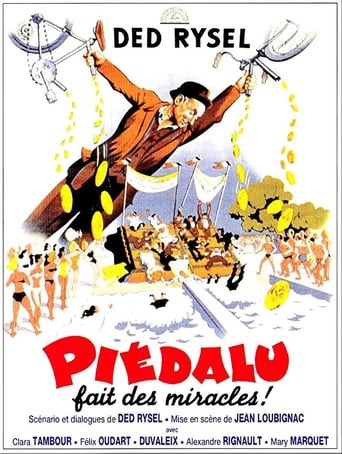
Piédalu fait des miracles
The inhabitants of Marboue-Chambourcy want a swimming pool, and the difficulties in realizing this expensive dream divide the village into two clans:...
Scaoileadh : 1952.10.10Coitianta : 1.159
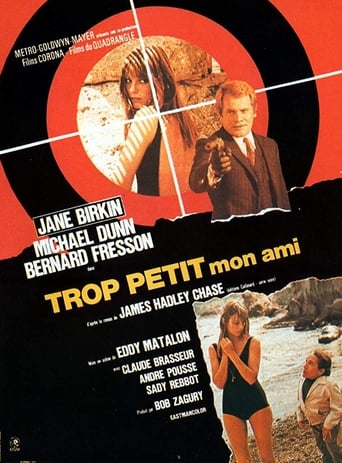
Too Small My Friend
Ticky Edriss, a dwarf, develops a scheme to avenge him on society and extort a bank.
Scaoileadh : 1971.08.06Coitianta : 1.312
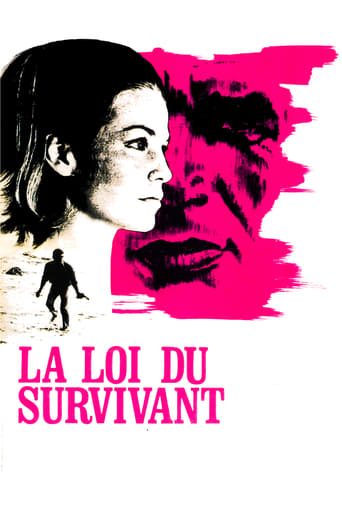
Law of Survival
In 1960, Stan, the protagonist, after having made a fortune in Asia, returns to Corsica, to visit a friend's tomb. In Ajaccio, he meets Helene, who...
Scaoileadh : 1967.04.19Coitianta : 2.052
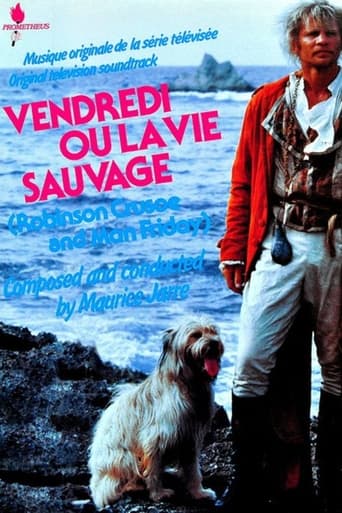
Vendredi ou la vie sauvage
Victim of a shipwreck, a British man is stranded on a deserted island where he manages to survive through ingenuity.
Scaoileadh : 1983.02.25Coitianta : 1.749

The Hunchback of Notre Dame
Paris, 1482. Today is the festival of the fools, taking place like each year in the square outside Cathedral Notre Dame. Among jugglers and other...
Scaoileadh : 1956.12.19Coitianta : 19.484

Jamais plus toujours
Claire (Bulle Ogier) returns to France following the death of her actress friend Agathe (Loleh Bellon). She attends an auction of her friend's...
Scaoileadh : 1976.03.10Coitianta : 1.181

Egypt, oh Egypt: Images of Heaven
A documentary short about Egypt.
Scaoileadh : 1963.01.01Coitianta : 0.037

The Star Ship
Onboard a spaceship sailing into infinity, generations of travelers are subject to dictatorial rules imposed by the central computer "Psycho."...
Scaoileadh : 1962.12.11Coitianta : 1.074

Calligraphie Japonaise
In a comparative study between different forms of calligraphy, the film traces parallels between modern Japanese painting and traditional Japanese...
Scaoileadh : 1958.01.01Coitianta : 0.251
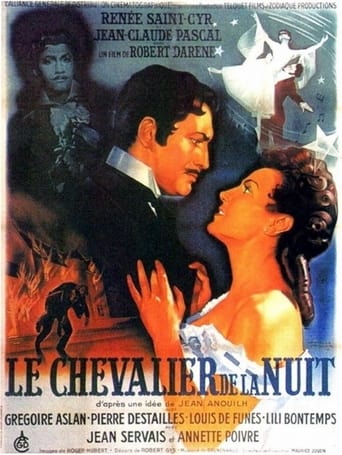
The Knight of the Night
Paris, 1884. Bella Fontanges, a renowned ballerina, is married to Georges de Segar. But after just a few years together, the couple slowly sinks into...
Scaoileadh : 1953.11.22Coitianta : 1.456

One Must Live Dangerously
Richard is a private detective. He makes a good money from marital infidelity: the deceived husband and wife generously paid him for proof of their...
Scaoileadh : 1975.09.03Coitianta : 1.341

The Life and Loves of Beethoven
Lyrical biography of the classical composer, depicted as a romantic hero, an accursed artist.
Scaoileadh : 1937.01.15Coitianta : 2.84
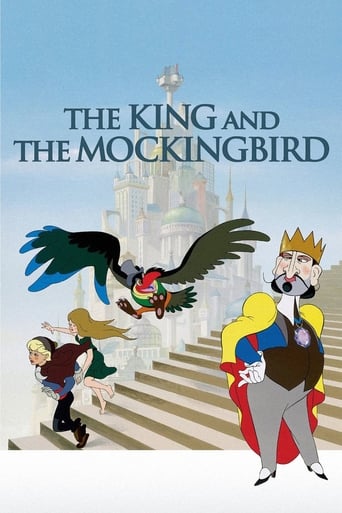
The King and the Mockingbird
A young shepherdess and a chimneysweep plan to get married and escape the clutches of a tyrannical king in love with her, assisted by the guile of a...
Scaoileadh : 1980.03.19Coitianta : 10.196
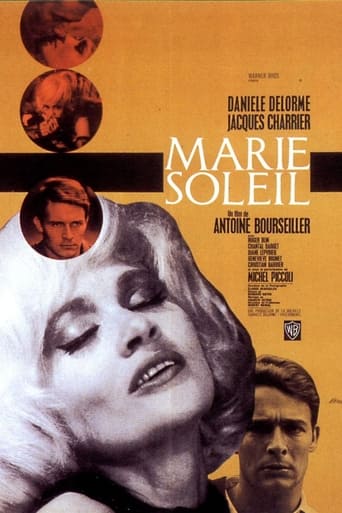
Marie Soleil
He's twenty-five. She's thirty-five. He is a young agricultural engineer. She runs a nightclub in Cahors. He's a runner and a pretty boy. She's...
Scaoileadh : 1964.12.19Coitianta : 1.316
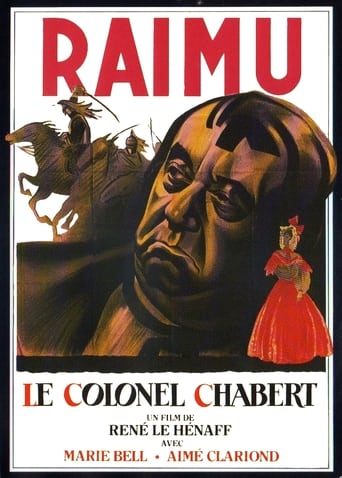
Colonel Chabert
The story of a French officer who is assumed dead during the Napoleonic Wars, but returns ten years later to a very different France, both on a...
Scaoileadh : 1943.12.01Coitianta : 2.421

The Invitation to the Waltz
French horror short from 1954.
Scaoileadh : 1954.01.01Coitianta : 0.498
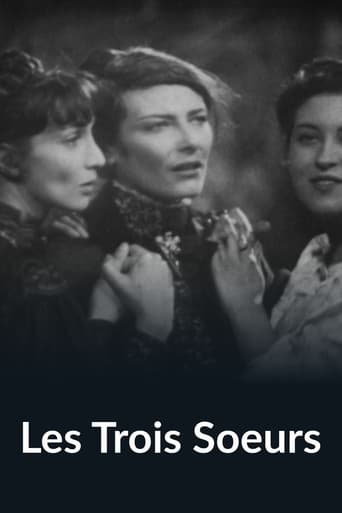
Les trois soeurs
A year after the death of their father, life can begin again for Macha, Olga, Irina and their brother, Andrei. But the unpredictability of life...
Scaoileadh : 1960.01.31Coitianta : 1.838
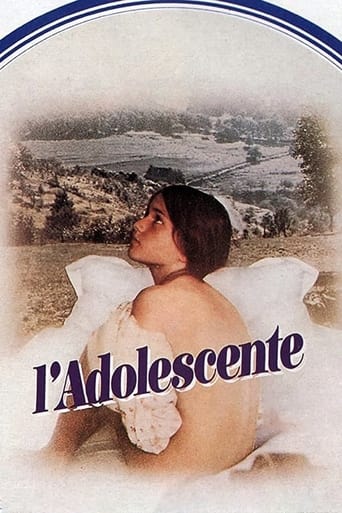
The Adolescent
In the summer of 1939, 13-year-old Marie goes with her parents to visit her grandparents in a small town near Avignon. Marie discovers her femininity...
Scaoileadh : 1979.01.24Coitianta : 3.562
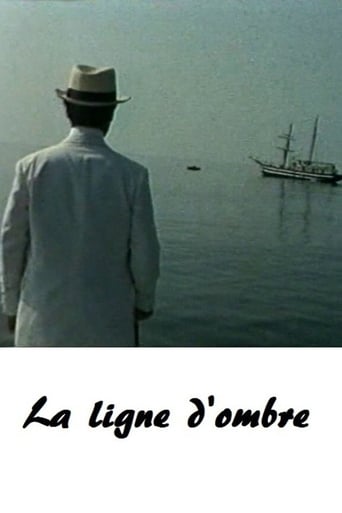
The Shadow Line
Story of a young, inexperienced ship captain named Marlow, who struggles in solitude during the voyage with disease, insubordinate crew and vagaries...
Scaoileadh : 1973.08.29Coitianta : 1.468
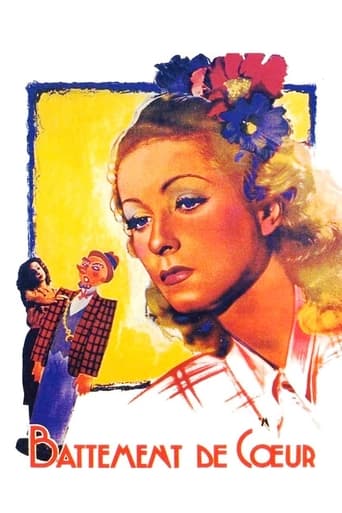
Beating Heart
Tells the story of a young woman escaping from reform school who tries to steal a foreign ambassador's watch but ends up falling in love with him.
Scaoileadh : 1940.02.01Coitianta : 2.934
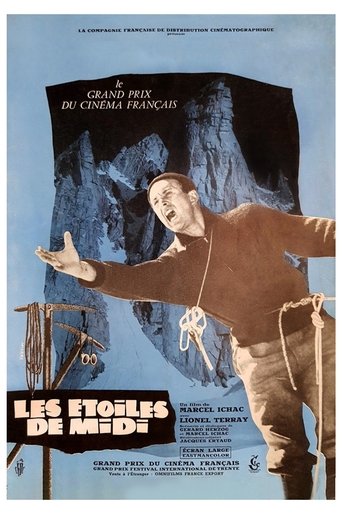
Stars at Noon
Les Etoiles de Midi is an engaging docudrama about some of the more spectacular exploits of French mountain climbers over the last several decades....
Scaoileadh : 1959.01.01Coitianta : 1.29
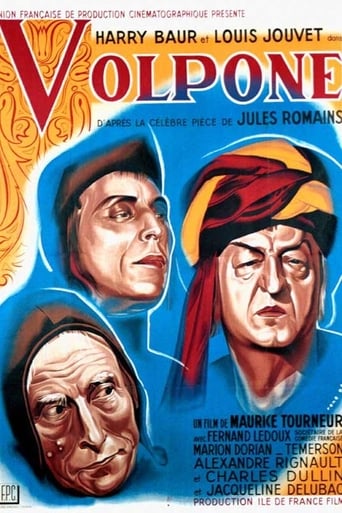
Volpone
Volpone, an elderly Venetian, connives with his money-crazed servant to convince his greedy friends that he is dying, knowing that each will try to...
Scaoileadh : 1941.05.10Coitianta : 2.316
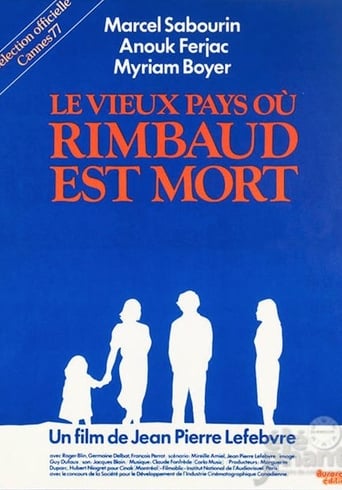
The Old Country Where Rimbaud Died
A middle-aged man travels to France and is discouraged by the attitudes of the people concerning his native land until he meets and begins...
Scaoileadh : 1977.08.08Coitianta : 3.111
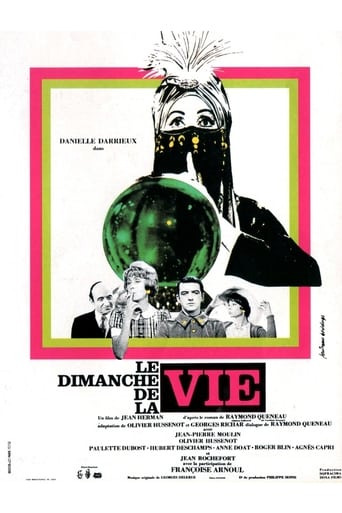
The Sunday of Life
After five years in the army, Valentin Brû marry a haberdasher. They move to Paris, where Valentin sells frames, while his wife becomes fortune...
Scaoileadh : 1967.01.13Coitianta : 1.85
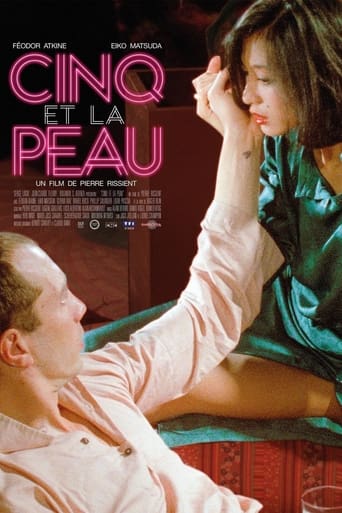
Five and the Skin
Ivan, a writer living in Manila, walks through the city in search of his past.
Scaoileadh : 1982.06.02Coitianta : 2.005
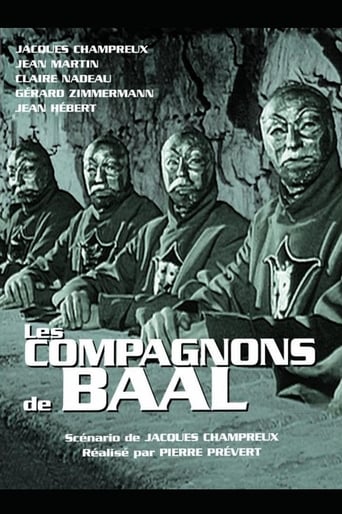
The Companions of Baal
Journalist Claude Leroy (Jacques Champreux) reports that a secret society, The Companions of Baal, is behind a hold-up in the small town of...
Scaoileadh : 1970.06.11Coitianta : 1.208
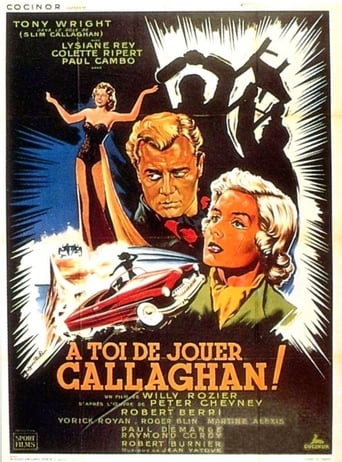
The Amazing Mr. Callaghan
A ship, La Circé, has sunk and it might possibly be criminal . The vessel belongs to Storata ,who asks the insurance company for a hundred...
Scaoileadh : 1955.03.28Coitianta : 1.334

Pasha's Wives
Mireille, a Frenchwoman, marries a westernized Turkish diplomat and, thinking that she will live a dream life in an Arabian Nights setting, follows...
Scaoileadh : 1939.02.18Coitianta : 1.33
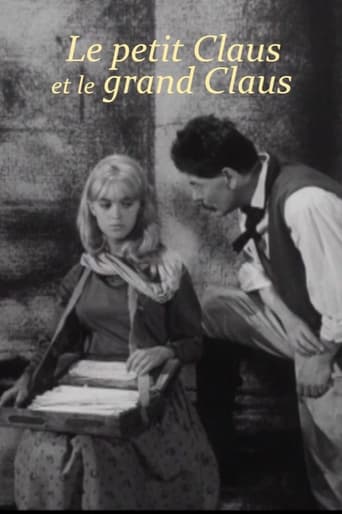
Little Claus and Big Claus
Once upon a time there lived in the same village two men bearing the very same name. One of them chanced to possess four horses, the other had only...
Scaoileadh : 1964.12.25Coitianta : 2.478
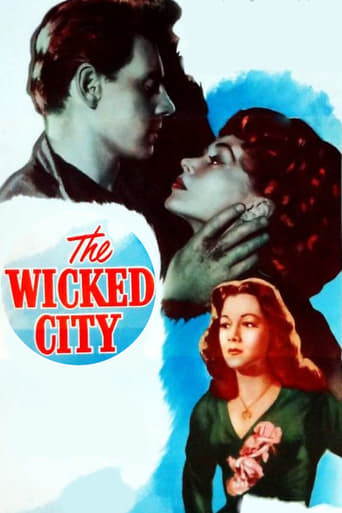
Wicked City
A Canadian sailor becomes a fugitive for love after a night with a woman in Marseille.
Scaoileadh : 1949.11.16Coitianta : 2.229
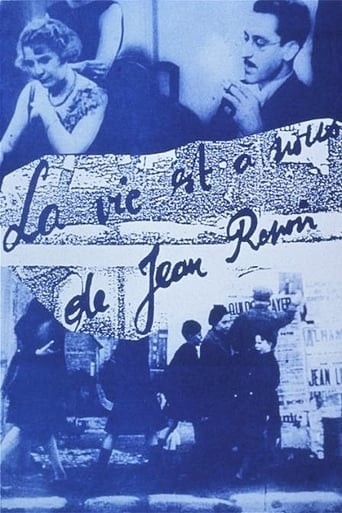
Life Is Ours
A propaganda film of the communist party of France, showing how the comrades help the proletariat against the capitalists.
Scaoileadh : 1936.04.07Coitianta : 1.64
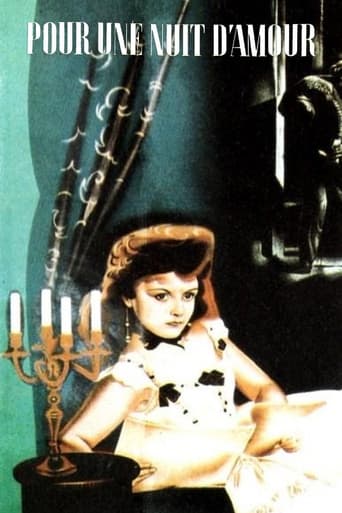
Passionnelle
Thérèse kills her lover during the very night of her wedding to the count of Vétheul. To gain a night with her, a modest local...
Scaoileadh : 1947.05.14Coitianta : 1.638
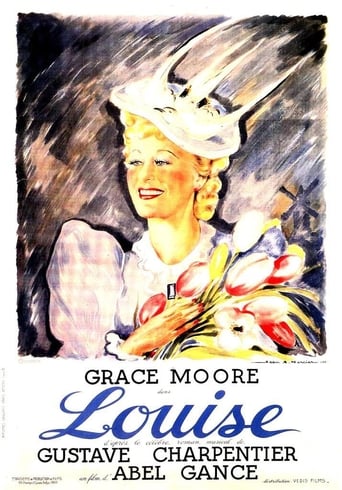
Louise
What was it about opera diva Grace Moore that attracted the attention of filmdom's top directors? Moore's 1937 American movie vehicle When You're in...
Scaoileadh : 1939.04.16Coitianta : 1.569
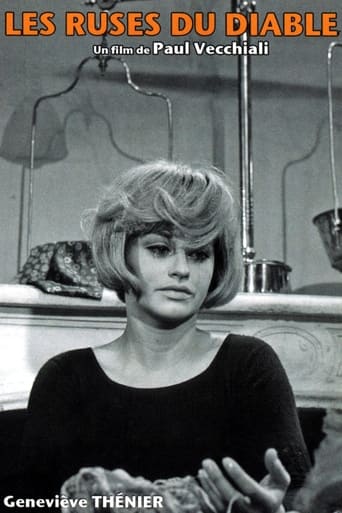
The Devil's Tricks
Ginette Chaluzac, who has left Central France for Paris, now works as a seamstress in a modest workshop in the Marais district. Her life is quiet and...
Scaoileadh : 1966.06.15Coitianta : 3.021

L'hôpital de Leningrad
A story of political imprisonment set in a mental hospital where the Stalin state police placed whoever their opponents were.
Scaoileadh : 1983.05.28Coitianta : 0.674
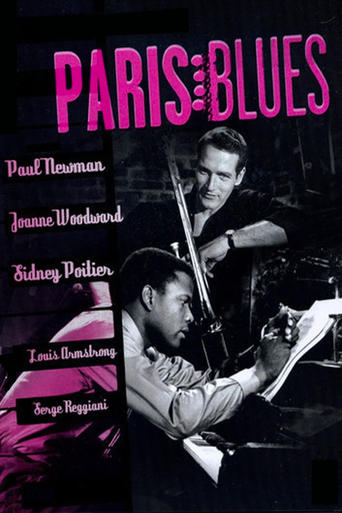
Paris Blues
During the 1960s, two American jazz musicians living in Paris meet and fall in love with two American tourist girls and must decide between music and...
Scaoileadh : 1961.09.27Coitianta : 6.697

Qui donc a rêvé ?
A little girl named Alice dreams about going through the looking-glass and becoming a queen in the mirror reality.
Scaoileadh : 1965.12.31Coitianta : 0.585

The Curious Adventures of Mr. Wonderbird
A chimney sweep and his beloved shepherdess are aided by Wonderbird in their escape from a ruthless dictator
Scaoileadh : 1953.05.29Coitianta : 3.544

Aloïse
The painful life of a mentally unstable but highly gifted woman is unveiled in this film, based on episodes from the life of an actual person. Aloise...
Scaoileadh : 1975.04.02Coitianta : 3.069
 11tv.pw
11tv.pw